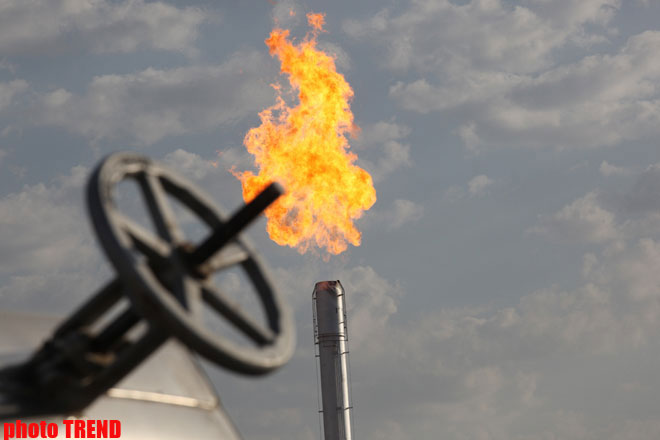Azerbaijan, Baku, May 31 / Trend A. Badalova /
Construction of East-West gas pipeline by Turkmenistan will increase energy independence and increase the chances of implementation of the Trans-Caspian pipeline, Western experts said.
"Pipeline control is one more step to reinforce Turkmenistan's independence. Multiple pipelines reduce Turkmenistan's reliance on any one country, and control of the East-West pipeline only increases Turkmenistan's independence and flexibility," ESAI (Energy Security Analysis) analyst Andrew Reed told Trend via e-mail.
This policy can ultimately lead to Turkmenistan's participation in a Trans-Caspian gas pipeline, he said.
Turkmenistan has launched building of the main gas pipeline East-West with length of 1,000 kilometers and a capacity of 30 billion cubic meters annually on its territory this week.
It will connect the eastern region of Turkmenistan and the Caspian Sea to the central regions of the country. Earlier this month, the President signed a decree on which the construction of a pipeline that is scheduled for June, will be implemented at the expense of state concern Turkmengaz and Turkmennebitgazgurlushik. The first deliveries are scheduled for June 2015. Estimated cost of gas is more than $2 billion.
It was planned that Russian Gazprom will be involved in the construction of pipeline and and the construction of highways will subsequently be connected to the Caspian gas pipeline.
Today, the probability of connecting the East-West pipeline to the Russian pipeline remains in force. However, the gas could also be pumped to the Trans-Gas Pipeline, which is a necessary step for the delivery of Turkmen gas via Nabucco pipeline. A new East-West gas pipeline can be the main link of a gas pipeline system of communication formed in Turkmenistan. It will transport natural gas in different directions. Furthermore, Turkmenistan's control over gas pipeline allows a country to make a choice about the direction of export of its gas.
This new pipeline, together with the other one that is going to connect Turkmenistan with China and a third one that might go from Turkmenistan to India and Pakistan, clearly shows the country's willingness to become a primary subject in the natural gas arena. As far as Europe is concerned, the possibility of filling Nabucco pipeline with Turkmen gas, as well as other Caspian gas, makes it more solid and closer the Nabucco project, although uncertainty is still too much to tell how things will go in the medium run, Italian Bruno Leoni Institute Department on Energy Carlo Stagnaro said.
"I believe that, in general, the more infrastructures are built, the more the market is likely to be liquid, and therefore producing and consuming countries have a chance to integrate with each other," Stagnaro told trend via e-mail.
Nabucco pipeline project worth 7.9 billion euros includes the supply of gas from the Caspian region and the Middle East to the EU countries. Construction of the pipeline is scheduled for 2011 and first deliveries are expected to be made in 2014.
Today Turkmenistan exports its gas in three areas - Russia, Iran and China. The volume of Turkmen gas supplies to Russia will make 10 billion cubic meters this year, to China - from 10 to 13 billion cubic meters.
The country has repeatedly stated that it adheres to the policy of diversification of export routes for its gas and has repeatedly demonstrated interest in the European gas market. Nevertheless, the delivery of Turkmen gas to European countries is complicated by the lack of gas pipeline, namely the Trans-Caspian. Its construction is now hampered by the unresolved issue of the status of the Caspian Sea.
Turkmenistan is interested to make gas deals with European companies and the Nabucco shareholders are working on that, Nabucco project official representative Christian Dolezal said.
The recent plans for the Pipeline are for sure an encouraging signal for the construction of a Trans Caspian Pipeline, Dolezal told Trend via e-mail.
The main base for filling the East-West gas pipeline will be the deposit Southern Eloten Osman, which reserves are estimated at 14 trillion cubic meters.






